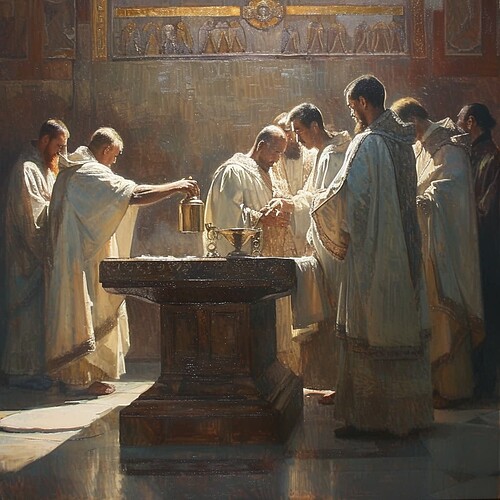 February 18: Psalm 85, 86 - Restoring Love and Dependence
February 18: Psalm 85, 86 - Restoring Love and Dependence
 Introduction
Introduction
Welcome to our collective journey exploring the divine treasury of the Psalms. On this day, we delve into psalms 85 and 86, touching on themes of reconciliation, revival, and complete dependence on God.
 Psalm 85: A Plea for Revival
Psalm 85: A Plea for Revival
In Psalm 85, the Sons of Korah recall God’s past mercy and restoration, expressing hope that God will again restore and revive their lives.
Key Verse: “Will you not revive us again, that your people may rejoice in you?” (Psalm 85:6)
 Psalm 86: A Prayer of Dependence
Psalm 86: A Prayer of Dependence
David’s plea in Psalm 86 is a raw declaration of complete dependence on God. This psalm beautifully encapsulates humility, vulnerability, and trust.
Key Verse: “Teach me your way, LORD, that I may rely on your faithfulness; give me an undivided heart, that I may fear your name.” (Psalm 86:11)
 Key Themes and Reflections
Key Themes and Reflections
In both psalms, we encounter two overriding themes - God’s refreshing grace and the joy of wholly relying on Him. These underline the heart cry for God’s intervention and the ceaseless pursuit of His wisdom.
 Today’s Application
Today’s Application
The verses call us to a renewed sense of dependence on God and to daily seek His guidance. In our fast-paced lives, these psalms remind us to pause, reflect, and find restoration in God’s unfailing love and faithfulness.
 Hidden Gem
Hidden Gem
You might have missed that Psalm 86 is one of the few psalms attributed explicitly to David in the third book of the Psalms. This inclusion emphasises the personal nature of David’s plea, adding depth to its heartfelt contents.
 Reflective Q&A
Reflective Q&A
![]() How can we practice reliance on God in today’s world?
How can we practice reliance on God in today’s world?
A: Through prayer, seeking His wisdom in His word, and putting our trust in Him in our decisions.
![]() What does revival look like in personal life and in communities?
What does revival look like in personal life and in communities?
A: Personal revival may mean renewed zeal for the Lord, while community revival often leads to increased unity and love towards others.
![]() How can we reflect God’s unfailing love towards others?
How can we reflect God’s unfailing love towards others?
A: By showing kindness, forgiveness, and understanding, we mirror God’s love.
 Join the Discussion
Join the Discussion
Feel free to share your thoughts, reflections, and insights on these psalms in the comments. It’s always a blessing to learn and grow together.
 See You Tomorrow in Psalm 87, 88
See You Tomorrow in Psalm 87, 88
Continue this journey with us tomorrow as we explore Psalms 87 and 88, studying themes of God’s love for His city and a cry for deliverance in the midst of suffering. As we close today, let’s respond to the call to find renewal in our dependence on God’s steadfast love and faithfulness.
